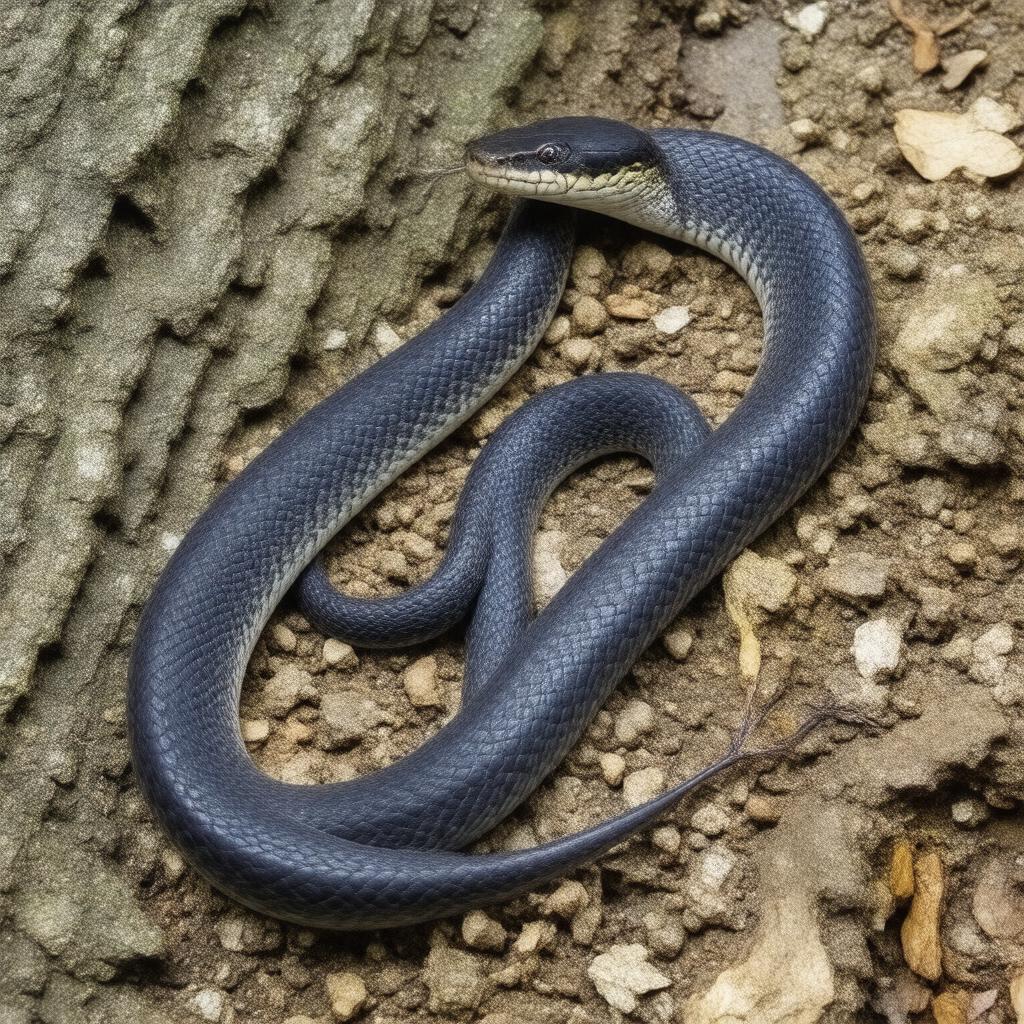Prompt
"Generate an image of a glossy blue-black Eastern indigo snake, Drymarchon couperi, in its natural habitat of pine flatwoods, showcasing its length of up to 2.8 meters, with a possible background of Southeastern United States landscape, specifically in Florida, Georgia, Alabama, or Mississippi, highlighting its threatened conservation status, in a realistic and diurnal setting, with possible use of a Gopher Tortoise Burrow."

